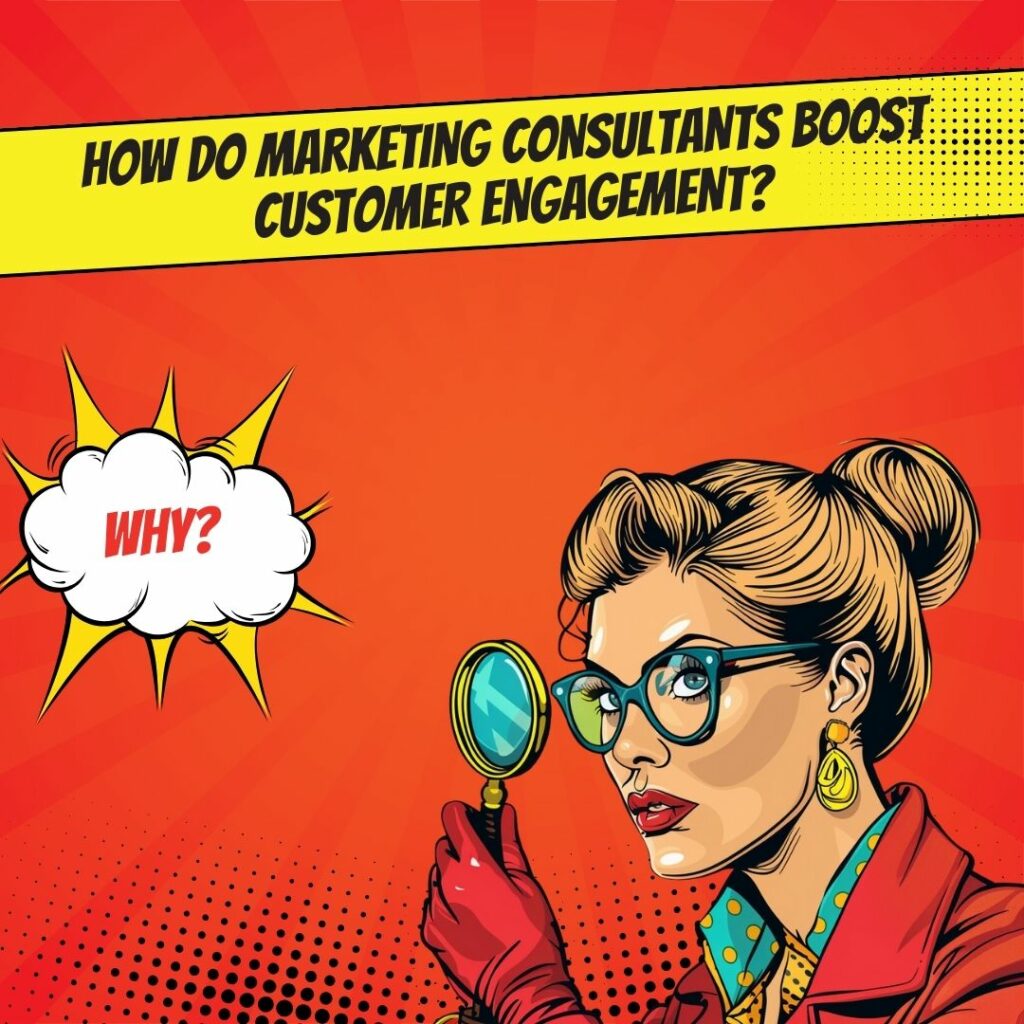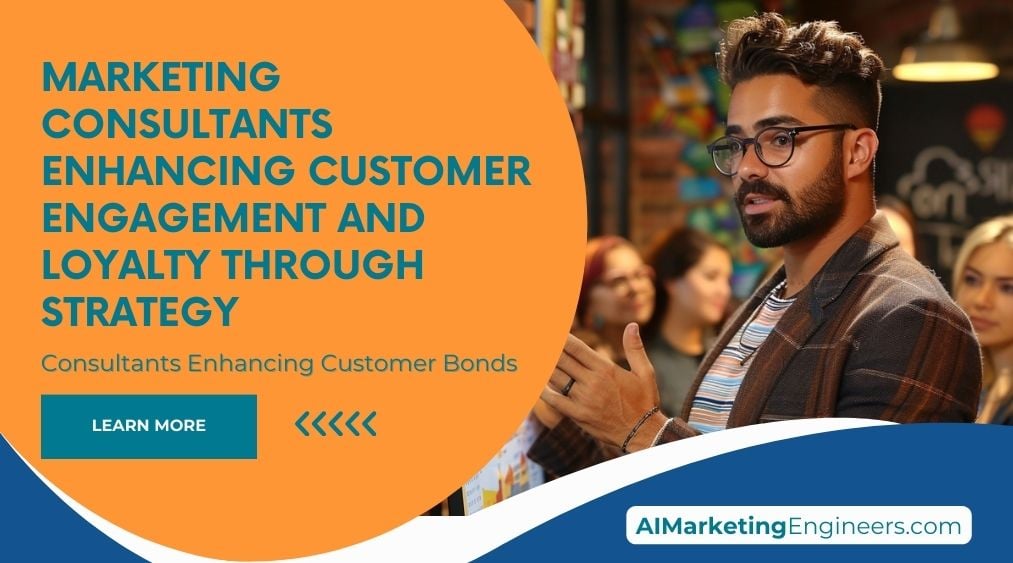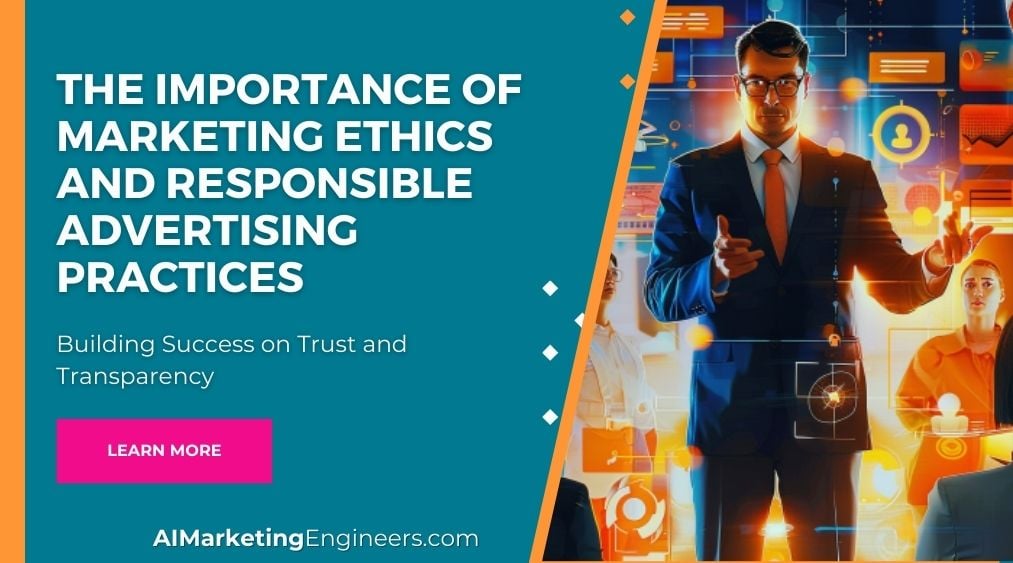Key Takeaways
✅ Personalization and Emotional Connection: Marketing consultants ensure personalized customer experiences that resonate emotionally, leading to stronger loyalty. They tailor content to meet specific needs through various channels, making customers feel valued and understood.
✅ Holistic Customer Engagement Strategy: Developing a comprehensive strategy involving pre- and post-purchase stages helps streamline interactions and improve satisfaction. Consultants set measurable goals and track engagement metrics to adapt strategies and meet customer expectations.
✅ Customer-Centric Approach and Feedback: Placing value on customers' needs fosters trust and builds loyalty. Consultants emphasize listening to customer concerns and continuously improving based on feedback, ensuring that customers feel heard and appreciated.
 Introduction
Introduction
In today’s competitive market, enhancing customer engagement and loyalty is more crucial than ever for long-term business success. Marketing consultants play a pivotal role in helping businesses achieve these goals by developing and implementing effective strategies tailored to their unique needs. By leveraging their expertise, companies can better understand their customers, create meaningful interactions, and build lasting relationships that drive repeat business and brand advocacy.
Marketing consultants bring a wealth of experience and fresh perspectives that can uncover new opportunities for engagement. They utilize data-driven insights and innovative techniques to craft strategies that resonate with customers on a deeper level. Whether through personalized marketing campaigns, targeted content, or loyalty programs, these consultants ensure that every touchpoint with the customer is optimized to enhance satisfaction and foster loyalty.
Top Statistics
| Top Statistics | Insight |
|---|---|
| 72% of customers will share a positive experience with 6 or more people | This highlights the power of word-of-mouth. A positive experience shared multiple times can significantly enhance brand visibility. |
| Companies that invest in customer engagement can see a 29% increase in return on investment | Investing in customer engagement pays off substantially by boosting ROI, making it a crucial strategy for businesses. |
| Improving customer retention by 5% can lead to a profit increase of 25% to 95% | Customer retention is a powerful driver of profitability. Small improvements can lead to large profit gains. |
| 81% of consumers prefer to interact with brands on social media | Engagement on social media platforms is not just prevalent but preferred, indicating the need for a strong social media presence. |
| 65% of a company’s business comes from existing customers | Existing customers are the cornerstone of business revenue, emphasizing the importance of loyalty strategies. |
Why Customer Engagement and Loyalty Matter
Customer engagement and loyalty are crucial for businesses seeking long-term relationships with their audience. Why is this so important? Effective customer engagement strategies can lead to increased customer loyalty and retention, creating a positive brand perception. Did you know that loyal customers spend 67% more than new ones? More than just boosting revenue, engagement strategies allow companies to tailor experiences, making each customer feel valued and unique. Building these connections also helps businesses gain valuable insights into customer preferences, enabling continuous improvement. Furthermore, engaged customers often become brand advocates, spreading positive word-of-mouth and attracting new customers. In today’s competitive market, maintaining high levels of engagement and loyalty can be a significant differentiator for brands.
How Marketing Consultants Enhance Customer Engagement
Marketing consultants bring specialized knowledge that can sharpen a company's engagement strategies. They have the expertise to pinpoint the "moments that matter" for high-value customer segments. How does this help? By understanding the financial implications of different channels, they help businesses invest wisely. Also, they support companies in meeting customer aspirations in ways that foster emotional connections and lasting loyalty. Consultants can identify gaps in current engagement strategies and recommend tailored solutions to address them. They also bring fresh perspectives, helping businesses stay ahead of industry trends and technological advancements. Overall, their insights and recommendations can lead to more effective and sustainable customer engagement practices.
Building a Customer Engagement Plan
Creating a successful customer engagement strategy starts with setting S.M.A.R.T. goals—goals that are Specific, Measurable, Achievable, Relevant, and Time-bound. It's essential to collaborate across departments and determine the best avenues for customer interaction. Gathering feedback from both internal and external stakeholders, including customers, refines the approach. Wouldn't you engage more with a brand that sends you timely, relevant, and personalized messages? Meeting customers where they are and using relationship marketing to build emotional ties are critical steps. Additionally, leveraging data analytics to understand customer behavior can enhance engagement strategies. Developing a comprehensive content calendar ensures consistent and meaningful communication with customers. Continuous evaluation and adjustment of the strategy are necessary to keep up with evolving customer expectations and market dynamics.
Putting Customer Engagement Strategies into Action
The key to implementation lies in sharing the company’s story, mission, and vision with the audience. Personalized interactions foster a sense of belonging, making customers feel heard and valued. Active listening isn’t just a buzzword; it allows companies to offer helpful content tailored to customer needs. Offering incentives for engagement adds another dimension to the strategy. Here, marketing consultants can help businesses actualize these strategies and create a customer-centric approach that enhances overall engagement. Utilizing various communication channels, including social media, email, and in-app messaging, can maximize reach and effectiveness. Implementing loyalty programs and exclusive offers can further incentivize customer interaction. Regularly updating and refining engagement tactics based on customer feedback ensures continued relevance and effectiveness.
Tracking and Improving Customer Engagement
How can businesses tell if their engagement strategies are working? By tracking customer engagement metrics. These metrics measure interactions' quality and frequency, guiding companies to tweak their approaches for better results. Marketing consultants assist in tracking and analyzing these metrics, ensuring strategies evolve for improved engagement over time. Are the identified metrics showing genuine engagement, or is there room for improvement? Regularly reviewing engagement data helps identify trends and areas needing attention. Using customer satisfaction surveys and feedback tools provides deeper insights into customer experiences. Ultimately, ongoing measurement and analysis allow businesses to refine their strategies continuously, ensuring sustained engagement and loyalty.
The Impact of Marketing Consultants on Customer Engagement and Loyalty
Leveraging the expertise of marketing consultants enables businesses to develop strategies that drive loyalty and revenue growth. A well-crafted engagement strategy isn’t just about immediate sales; it’s about building lasting relationships. By focusing on these strategies, businesses can see an increase in lifetime value for their brand, ultimately benefiting all stakeholders involved. Consultants provide a strategic roadmap for achieving high engagement levels, aligning efforts with business goals. They help companies stay agile, adapting strategies as market conditions and customer preferences change. Overall, their contributions lead to a more robust and loyal customer base, fostering long-term success.
AI Marketing Engineers Recommendation
Recommendation 1: Adopt a Personalized Marketing Strategy: Utilizing Marketing Consultants Enhancing Customer Engagement and Loyalty through Strategy can significantly improve personalization efforts. According to a report by Epsilon, 80% of consumers are more likely to make a purchase when brands offer personalized experiences. By hiring marketing consultants who specialize in data analytics and customer segmentation, businesses can tailor their marketing messages to individual preferences, thus driving higher engagement and loyalty.
Recommendation 2: Leverage AI and Automation Tools: Incorporating Marketing Consultants Enhancing Customer Engagement and Loyalty through Strategy allows businesses to make the most of current AI and automation trends. Recent data from Salesforce indicates that 51% of marketing leaders use AI to better understand customer behaviors. Consultants can guide businesses in integrating AI-driven tools like chatbots and automated email campaigns, which not only save time but also ensure consistent and personalized interactions with customers.
Recommendation 3: Implement Omnichannel Engagement Tactics: To fully benefit from Marketing Consultants Enhancing Customer Engagement and Loyalty through Strategy, implementing an omnichannel approach is essential. According to Omnisend, campaigns that utilize three or more channels earn a 87% higher purchase rate than single-channel campaigns. Marketing consultants can help businesses develop cohesive strategies across various touchpoints, including social media, email, and in-store experiences, fostering a seamless and engaging customer journey.
Relevant Links
- Revolutionize Your Marketing with AiMarketingEngineers.com
- Setting Impactful Campaign Goals: Key Factors Unveiled
- Increase Market Penetration with Targeted Reach Strategies
- Enhance Your Marketing with User Behavior Insights
Conclusion
By leveraging the expertise of marketing consultants, businesses can create and implement strategies that significantly enhance customer engagement and loyalty. Understanding the importance of customer engagement and loyalty is crucial for any business aiming for long-term success. Effective engagement strategies pave the way for increased customer retention, a positive brand perception, higher revenue, and better personalization.
Marketing consultants play an indispensable role, offering insights on the moments that matter and helping align strategies with customer aspirations. They guide businesses in setting S.M.A.R.T. goals and developing comprehensive engagement plans that span various departments and channels. Through relationship marketing and personalized communication, brands can forge emotional connections that resonate deeply with their audience.
Implementing these strategies includes sharing the company's story, crafting personalized interactions, and incentivizing customer participation. Consistently measuring and refining these efforts is key, and marketing consultants can help track meaningful metrics to gauge success and make informed improvements. In essence, the power of marketing consultants lies in their ability to help businesses build lasting, valuable relationships with customers. This not only boosts loyalty and retention but also drives long-term revenue growth. The next step for businesses is clear: harness the insights and skills of marketing consultants to create a customer-centric approach that truly delivers.
FAQs
Question 1: What is customer engagement?
Answer: Customer engagement refers to the process of building relationships with customers at every touchpoint, understanding their needs, preferences, and pain points, and tailoring brand experiences to meet and exceed their expectations.
Question 2: Why is customer engagement important?
Answer: Customer engagement is crucial for businesses seeking long-term relationships with their audience. It helps achieve goals such as customer loyalty, increased retention, positive brand perception, higher revenue, and increased personalization.
Question 3: What is the difference between customer engagement and customer experience?
Answer: Customer experience (CX) encompasses a customer's perception based on brand-related interactions. Customer engagement refers to the emotional connection between a customer and a brand, fostering loyalty through meaningful interactions.
Question 4: What is the role of CRM in customer engagement?
Answer: CRM (Customer Relationship Management) focuses on improving operational efficiency and enhancing customer relationships through data management, analysis, and optimization. Customer engagement deals with creating personalized experiences that resonate with customers.
Question 5: How can a customer-centric approach enhance customer engagement?
Answer: A customer-centric approach gives businesses a competitive edge by providing significant value to customers, making them active decision-makers rather than mere recipients of the experience. This approach helps build a loyal customer base and increases conversions.
Question 6: What are some effective strategies for customer engagement?
Answer: Strategies include sharing a company's story, mission, and vision; personalizing interactions; practicing active listening; offering helpful content; and leveraging cross-functional team collaboration.
Question 7: How can customer feedback be used to improve engagement?
Answer: Gathering feedback from internal and external stakeholders as well as customers helps identify what works and what needs improvement, allowing for adjustments to the engagement strategy.
Question 8: What is the importance of meeting customers where they are?
Answer: Meeting customers where they are involves sharing relevant content in places they frequent, such as social media, public spaces, or niche channels, to increase engagement and delight customers.
Question 9: How can a business set a goal for successful customer engagement?
Answer: Set a S.M.A.R.T. goal by thinking about why the business needs more customer engagement and what benefits it brings to the customer. This helps keep efforts focused and measurable.
Academic References
- HubSpot Blog. (2021). The Ultimate Guide to Customer Engagement in 2024. This comprehensive guide explores the nuances and strategies for customer engagement, offering actionable advice for marketers seeking to enhance their engagement efforts. The blog covers the role of personalization, cross-functional collaboration, and the importance of tracking engagement metrics.
- Segment. How to Create a Winning Customer Engagement Strategy. This source provides a practical framework for building effective customer engagement strategies. It emphasizes the importance of feedback, metrics, and a customer-centric approach for maximizing engagement and loyalty.
- Outreach.io. (2023). 11 Customer Engagement Strategies to Help Increase Conversions. Here, a variety of strategies are discussed that can aid in boosting conversions and enhancing customer loyalty. Key tactics include storytelling, personalization, active listening, and providing valuable content.
- Forbes. (2024). Customer Engagement In 2024: The Ultimate Guide. This ultimate guide from Forbes outlines customer engagement goals such as increased retention, positive brand perception, and higher revenue. The article provides insights on how to achieve these goals through detailed customer engagement strategies.












